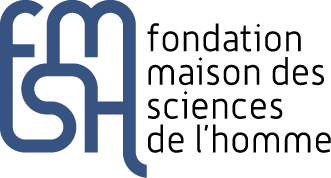Inaccessible Normative Pluralism and Human Rights in Afghanistan
Résumé
In anthropological and legal literature, the phenomenon termed 'legal pluralism' has been interpreted as a co-presence of legal orders which act in relation to their own 'levels' of referring 'fields'. The Afghan normative network is generally described in terms of pluralism, where different normative systems coexist: such as customs, shari'a (Islamic law), state laws and principles deriving from international standard of rights (e.g., human rights). In this article I abandon the neutral category of legal pluralism in order to bring forward a hypothesis of an inaccessible normative pluralism as a key concept in order to capture the structural injustices, of which Afghans are victims. Globally, the debates concerning the diffusion and application of human rights develop at the same time ideologically, politically and pragmatically. Today in Afghanistan these levels are expressed in all their complexity and ambivalence; it is therefore particularly significant to closely observe the work done by the Afghanistan Independent Human Rights Commission. Starting with my research fieldwork in Afghanistan (2005-2012) - where I studied judicial practices in the courts of Kabul, developing a reflection which weaves the spread of human rights with the themes of injustice and inaccessibility - I argue in this article the urgency and the necessity to concentrate on the contingent dimension of (in)justice.
L'inaccessible pluralisme normatif et les droits de l'homme en Afghanistan Dans la littérature anthropologique et juridique le phénomène appelé " pluralisme juridique " est interprété comme une co-présence des ordres juridique qui agissent dans le même contexte social. Le système juridique afghan est généralement décrit comme un pluralisme juridique dans lequel différents systèmes de réglementation cohabitent : les pratiques coutumières, la charia (loi islamique), les lois de l'état et les principes dérivés à partir de normes internationales du droit (par exemple les droits de l'homme). Dans cet article, je renonce à la catégorie neutre de " pluralisme juridique " en faveur de l'hypothèse d'un pluralisme normatif inaccessible comme concept clé pour la compréhension des injustices structurelles dont les Afghans sont victimes. De mon travail de recherche sur le terrain en Afghanistan (2005-2012) - au cours duquel j'ai étudié les pratiques judicaires dans les tribunaux de Kaboul, en développant une réflexion qui relie les thèmes des droits de l'homme avec ceux des injustices et de l'inaccessibilité - je soutiens, dans cet article, l'urgence et la nécessité de mettre l'accent sur la dimension contingente de l'(in)justice.
Origine :
Accord explicite pour ce dépôt
Loading...

